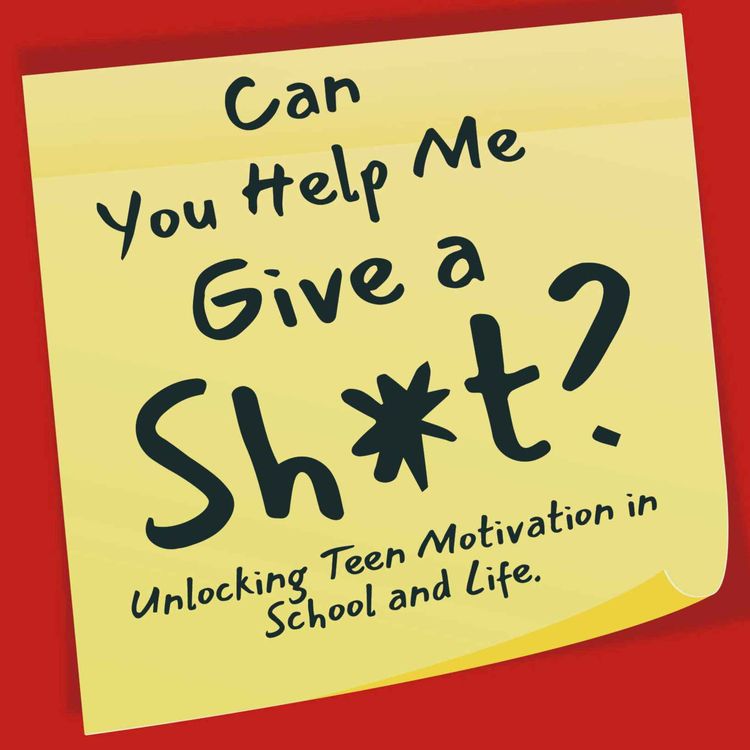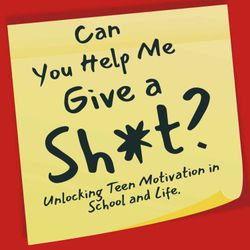Share

Can you help me give a sh*t?
How do you get your teen to listen to you when they want to listen to their friends more?
Season 1, Ep. 27
•
This week, Becca is joined by Cath Covacin, founder of Keys to Potential, who discusses key strategies she's learned form teaching young people in Australia on how to engage with tweens and teens so they want to listen to and connect with you even though the brain development is urging them to do a lot more listening to their peers. You can learn more about Cath's work, including her book and online courses for students, at KeystoPotential.com.au.
More episodes
View all episodes

29. What's right with you?
22:30||Season 1, Ep. 29For the final episode of season 1, Becca is rejoined by Liz and Jess to discuss a question they've each found it helpful to use when working with tweens and teens, whether as their kids or students: what's right with you? Liz opens it up with a story many parents can relate to of how hard it can be sometimes not to slip out with a "what's wrong with you?" when a kid makes a particularly big slip that just seems inexplicable, and this turns into a conversation about how we can help ourselves and our teens notice that what's right with anyone is often the flip side of what's "wrong" with them--and how we can use some techniques from the business world to do some "lean parenting," as Becca calls it, to make it easier to move forward.Want your questions answered in season 2? Submit them at canyouhelpmegivea.com on the podcast page or comment on one of our posts on IG @canyouhelpmegivea. And make sure you subscribe to the podcast so you get the alert when season 2 starts (throwing a review in there on your favorite podcast listening app is also always appreciated!)
28. When to use extrinsic motivation as a parent?
34:05||Season 1, Ep. 28Recently a listener reached out to Becca to ask about when to focus on building sustainable motivation vs when to just use standard extrinsic motivators, like rewards and punishments. To discuss this topic, Becca pulled in her spouse and co-parent, Mark Fasano, because it's both a topic with no one-size-fits-all-answer, and a topic they've discussed many times before. Becca shares how her tendency is to err on the side o building sustainable motivation, Mark on how his is to prioritize whatever will get the job done in the moment. They share examples of when it's worked well to learn from each other and crack jokes that only other Gen Xers will get. Please reach out to let us know your thoughts and questions on this or other topics via the form at canyouhelpmegivea.com. We can't wait to hear from you!
26. When we're in charge but not in control
43:43||Season 1, Ep. 26High school teacher Diane Manser started a journal a few years ago, trying to navigate the emotional work of being a teacher. At the request of other teachers, she turned that into the book I Didn't Sign Up For This. She joins today's conversation to share the key insight sh had as a teacher that allowed her to change how she navigates the hard emotional labor of teaching (& parenting): being in charge is not the same as being in control. She and Becca chat about how there's a lot of overlap between what motivates young people to learn and what motivates teachers to keep showing up for a tough job.Check out teachingisemotional.com and her instagram, facebook, and tiktok pages for more.
25. Youtube vs college: Which is better?
46:45||Season 1, Ep. 25In contrast with last week's episode, this week we delve into the flip side of the college question with Kadeem Leslie. He was a straight A student in college, went on to get a Master's degree, and then became an entrepreneur and investor -- and began to wonder at the exact return on investment (ROI) of college degrees. He shares his somewhat controversial but thoughtful take on how parents and students could work together to evaluate whether college or a more entrepreneurial, non-college pathway might be the best fit for a teenager interested in figuring out how they're going to earn money in adulthood. Listen in on today's episode to learn tips for evaluating exactly what the ROI is on that degree you're considering, how to run some simple experiments to see if an alternate pathway (like being a youtuber or trader) is right for you, and more. You can find Kadeem on instagram at iamkade_ and on youtube as well. And here are links to the two resources he mentioned in the episode: https://siteselection.com/cc/workforce/2022/education-level-is-only-one-part-of-the-lifetime-earnings-picture.cfm and https://freopp.org/oppblog/we-calculated-return-on-investment-for-30-000-bachelors-degrees-find-yours/Please don't forget to review and subscribe--and let us know whether you'd like more episodes like this one, or to have us hit on other topics instead. We want to hear from you!
24. What do college-bound h.s. sophomores sometimes overlook?
29:45||Season 1, Ep. 24Often, students and families don't start thinking about college readiness until their junior year of high school. Or, on the flip side, some families have been thinking about it since elementary school, carefully selecting every move that might lead to that perfect college application. Either way, former guidance counselor Briana Rahmani noticed that there's something many families overlook: the importance of exploration. Listen to today's episode to understand the important role exploration without too much pressure plays in college readiness. And learn even more valuable tips and resources at Briana's website, thecollegeinme.com and @thecollegeinme on IG and facebook.
23. Why is connection essential to help teens avoid substance abuse?
01:04:45||Season 1, Ep. 23Today's episode is a very candid (and explicit--there are a lot of curse words in this one) conversation with recovering addict Rory Londer about how connection allowed him to come back from drug use that had him living unhoused and stealing to get his next high. He shares his full story in his book, Should've Been Dead, but in today's episode he shares the parts of his story that are most relevant for parents and educators working with young people. Rory speaks about the young people he has connected with and helped since getting clean and coming to speak at schools and ALCs, and why checking yourself for authenticity and expectations can make a massive difference in helping at-risk teens. You can learn more about Rory and his story at shouldvebeendead.com. You can also find him at rorylonderspeaker on Facebook.
22. How do I help my teen when they're losing their stuff?
33:05||Season 1, Ep. 22In this episode, we discuss a question many parents and educators share: how do I handle it when the teen in front of me is just absolutely losing their you-know-what in front of me? We've all been there: the teen or pre-teen in front of us is realy upset, crying or yelling, and we're wondering "well now what do I do?" Shahin has faced this experience directly herself as a parent, and coached many parents on how to approach it as a mindfulness teacher, and she shares tips today on how to navigate those emotionally fraught moments without regrets. Stay tuned for a particular tip she gives in the latter third of the episode on what to do with the 90 seconds it takes for an emotion to move through your body--it's one I (Becca) hadn't heard before, even though I've practiced meditation for decades, and I've tried it since recording this conversation and really found it helpful.You can find out more about Shahin and the resources she references in this episode at mindful-changes.com, where you can also find her links to her socials and to free resources.
21. Why is motivation especially hard in middle school?
32:05||Season 1, Ep. 21In this episode, teacher Kelly Tag, who has taught across the K-12 spectrum in a variety of school environments, joins us to talk about why middle school can be an especially tricky time for motivation -- for both students and teachers! Becca and Kelly wrangle through their different opinions in what the best motivators are for this age group (grades, test scores, love of learning?), and Kelly shares stories from her range of classroom experiences. You can find out more about Kelly on her YouTube channel Teacher Kelly Tag where she talks about all things education.